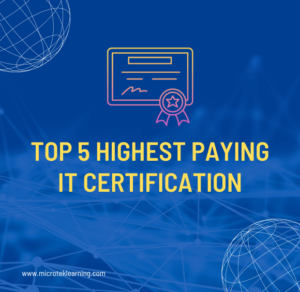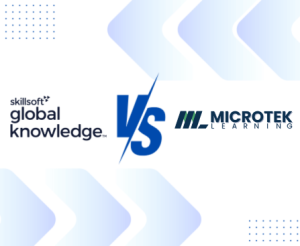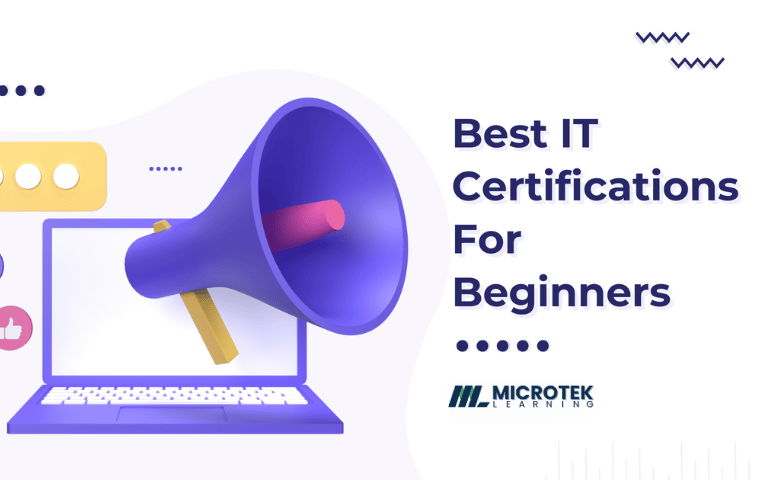
Starting a career in Information Technology (IT) can be exciting and overwhelming. In the ever-evolving IT landscape, earning the right certifications can help you stand out in the competitive job market. But where do you start? Whether you’re a recent graduate, a career changer or looking to improve your skills, this guide will show you the best IT certifications for beginners.
Introduction to IT Certifications
Why are IT Certifications Important?
In the IT industry, certifications validate your skills and knowledge and make you more attractive to employers. They show that you are willing to keep learning and keep up with the latest technologies.
Types of IT Certifications
IT certifications can be broadly categorized into vendor-specific, vendor-neutral and role-based certifications. Understanding these categories will help you choose the right certification path.
Basic certifications
CompTIA IT Fundamentals (ITF+)

Overview
CompTIA ITF+ is an entry-level certification for individuals seeking a career in IT. It covers basic IT concepts including hardware, software, security and networks.
Who should take ITF+?
Ideal for students, career changers or anyone who wants to understand the basics of IT.
CompTIA A+

Overview
CompTIA A+ is a widely recognized certification that covers key IT skills such as troubleshooting, networking, security and operating systems.
Benefits of A+ Certification
- Foundation for IT Careers: A stepping stone to a variety of IT careers.
- Industry Recognition: Valued by employers worldwide.
Also Read: CompTIA A+ vs Security+: Which Certification to Pursue in 2025?
Networking Certifications
Cisco Certified Network Associate (CCNA)

Overview
The CCNA certifies your ability to install, configure, operate and troubleshoot medium-sized routed and switched networks.
Why Choose CCNA?
Cisco is a leader in networking, and the CCNA is highly respected and opens the doors to many networking functions.
CompTIA Network+
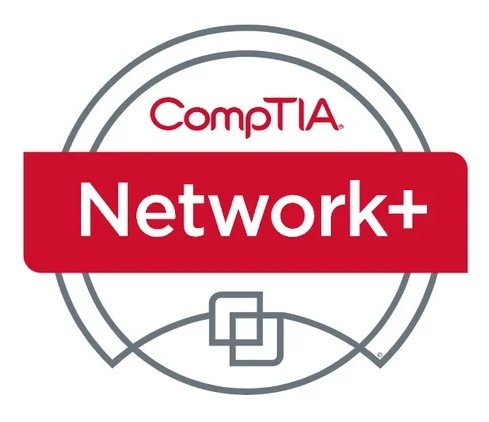
Overview
Network+ focuses on fundamental networking skills, including network design, implementation, management and security.
Ideal Candidates
Ideal for anyone who wants to gain a comprehensive understanding of networks without focusing on a specific vendor.
Also Read: CompTIA A+ Vs. Network+: A Comprehensive Comparison Guide
Security Certifications
CompTIA Security+
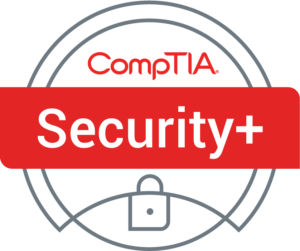
Overview
Security+ covers the fundamental principles of securing a network and managing risk. It covers topics such as threats, vulnerabilities and cryptography.
Importance of Security+
With cyber threats on the rise, Security+ is essential for cyber security, IT administration and network management roles.
Certified Information Systems Security Professional (CISSP)

Overview
The CISSP is more advanced, but still a worthy goal for the future. It covers a comprehensive range of security topics.
Career Impact
The CISSP is highly valued for senior security positions and shows that you have a deep understanding of cybersecurity.
Also Read: CISSP vs CISA: Which One Is Right for You?
Cloud Computing Certifications
Amazon Web Services (AWS) Certified Cloud Practitioner
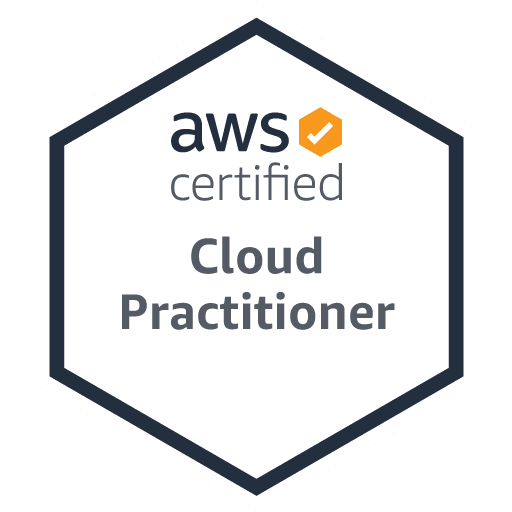
Overview
This certification provides a basic understanding of AWS cloud services and their use cases.
Why the AWS certification?
AWS is a leading provider of cloud services, and this certification is ideal for beginners looking to enter the cloud space.
Microsoft Certified: Azure Fundamentals
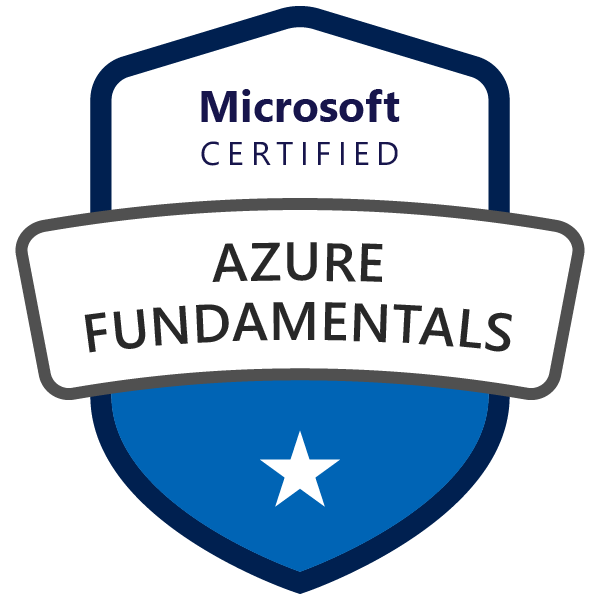
Overview
Azure Fundamentals covers basic cloud concepts and the services offered by Microsoft Azure.
Benefits
Ideal for anyone interested in Microsoft technologies and cloud services
Programming and Development Certifications
Oracle Certified Associate, Java SE Programmer

Overview
This certification certifies your knowledge of Java programming, a widely used language for various applications.
Career Opportunities
Opens doors to positions in software development, application development and more.
Microsoft Certified: Azure Developer Associate
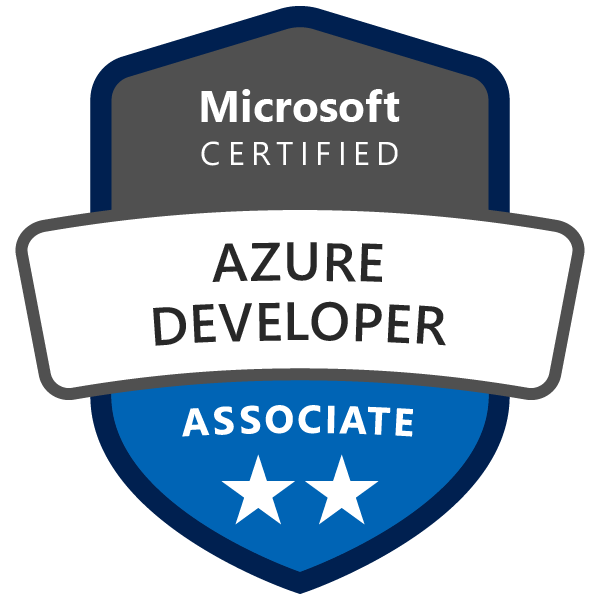
Overview
Focuses on developing applications on the Azure platform, including cloud services, storage and security.
Ideal for Developers
Perfect for anyone who wants to specialize in developing cloud-based applications.
Data and Database Certifications
Microsoft Certified: Azure Data Fundamentals
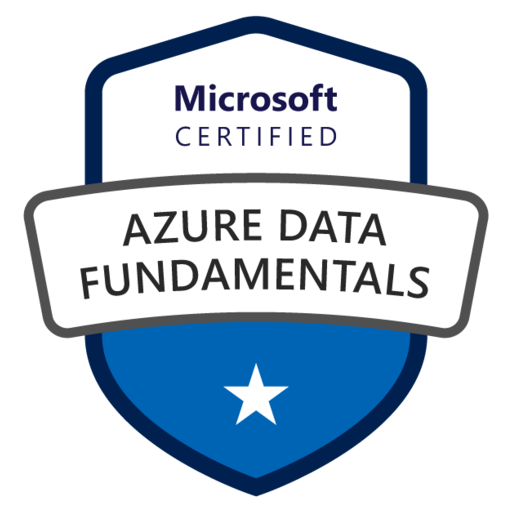
Overview
Covers key data concepts and how they are implemented with Microsoft Azure data services.
Who should take the course?
Ideal for beginners interested in data management and analytics in the cloud.
Oracle Certified Professional, MySQL Database Administrator
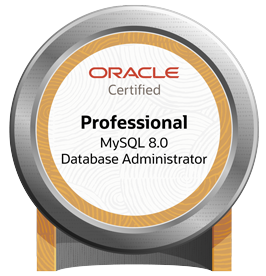
Overview
Validates your knowledge of MySQL database administration and maintenance.
Professional relevance
Essential for database administration and data analysis roles.
Project Management Certifications
Certified Associate in Project Management (CAPM)
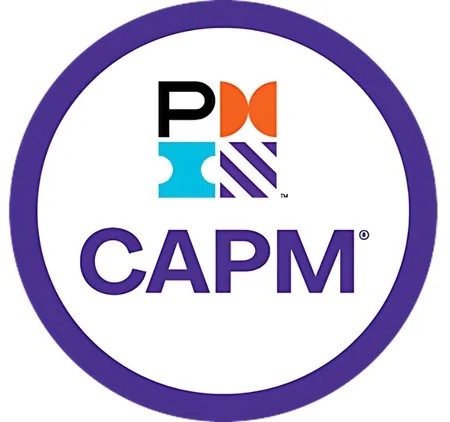
Overview
The CAPM provides basic project management knowledge, including processes, terminology and best practices.
Benefits for IT Professionals
Helps with the effective management of IT projects and improves coordination and implementation.
ITIL Foundation

Overview
ITIL Foundation covers the basics of IT service management and focuses on aligning IT services with business requirements.
Why ITIL is important?
Essential for IT service management tasks to ensure efficient and effective IT operations.
Virtualization Certifications
VMware Certified Technical Associate (VCTA)
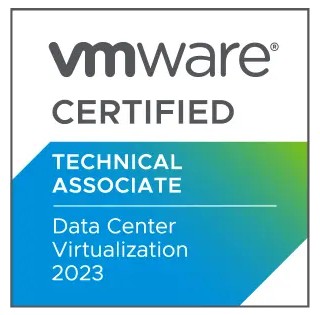
Overview
VCTA introduces virtualization concepts and VMware products and prepares you for advanced VMware certifications.
Career Pathways
Ideal for those who want to specialize in virtualization and cloud infrastructures.
Emerging Technologies Certifications
Certified Internet of Things (IoT) Foundation
Overview
Focuses on IoT concepts, architectures, and applications and prepares you for roles in the growing IoT sector.
Future Prospects
As IoT becomes more widespread, this certification will open doors to innovative technology careers.
Introduction to the Artificial Intelligence (AI) Certification
Overview
Provides a basic understanding of AI principles, machine learning and its applications.
Relevance in Today’s Market
AI is changing the industry; this certification is a stepping stone into the AI field.
Soft Skills and Complementary Certifications
Certified Ethical Hacker (CEH)
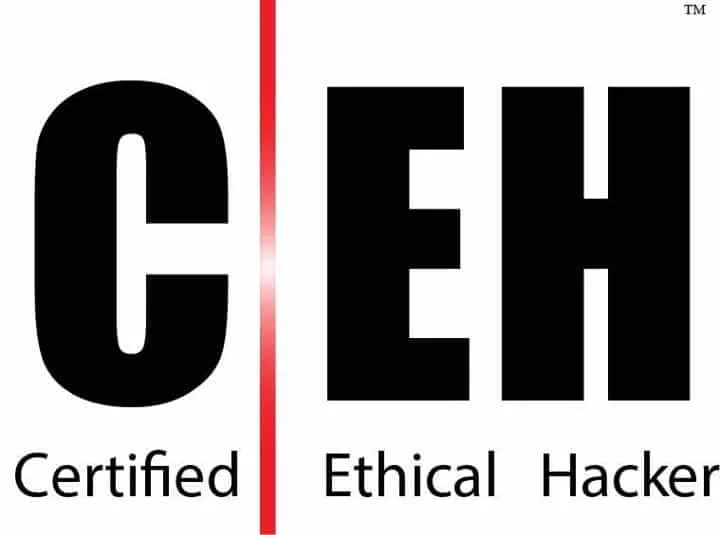
Overview
CEH focuses on ethical hacking techniques and teaches you how to identify and mitigate security vulnerabilities.
Importance of Cybersecurity
Critical to cybersecurity are functions that help organizations protect themselves from malicious attacks.
Certified ScrumMaster (CSM)

Overview
Covers Agile and Scrum methodologies and improves your project management and teamwork skills.
Benefits for IT Teams
Promotes efficient project delivery and improved collaboration among IT teams.
Choosing the Right Certification for You
Assessing Your Career Goals
Find out where you want to be in the IT landscape to choose the certifications that match your goals.
Balancing Cost and Value
Consider the investment required for each certification against the potential career benefits.
Utilize free resources
Many certifications offer free study materials and practice exams to help you prepare without breaking the bank.
Preparing for Certification Exams
Study Strategies
Develop a study plan, use practice tests and join study groups to improve your preparation.
Utilizing Official Resources
The official guides and training materials from the certification bodies are invaluable for exam success.
Time Management Tips
Allow sufficient time for each subject area to ensure a balanced and comprehensive understanding.
Maximize the benefits of your certification
Updating Your Resume
Highlight your certifications clearly to attract the attention of potential employers and recruiters.
Networking Opportunities
Join professional networks and attend industry events to connect with other certified professionals.
Continuous Learning
Keep up to date with the latest trends and advances to maintain and enhance your certifications.
Conclusion
Starting your IT career can seem daunting, but the right certifications can pave the way to success. By choosing the certifications that align with your career goals and investing time in preparation, you can improve your skills, increase your employability and stay ahead in the dynamic world of IT.
FAQs
How long does it take to earn an IT certification for beginners?
The duration varies depending on the certification. Some, such as CompTIA ITF+, can be completed in a few weeks, while others require several months of preparation.
Are online courses sufficient to prepare for IT certifications?
Many online courses offer comprehensive training materials, practice exams and interactive sessions to help you prepare effectively.
Do I need prior IT experience to pursue these certifications?
Most entry-level certifications are designed for people with little to no IT experience, so they are accessible to newcomers.
How often should I renew my IT certifications?
Renewal periods vary depending on the certification. Some need to be renewed every few years, while others require continuing education credits to maintain validity.
Can IT certifications lead to higher salaries?
Absolutely. Certifications often lead to better job opportunities and can significantly increase your earning potential in the IT industry.
What is the first IT course I should take?
The first IT course you should consider is the CompTIA IT Fundamentals (ITF+). This certification is specifically designed for people who are new to the IT industry. It covers basic IT concepts including hardware, software, security and networks. The ITF+ course provides a solid foundation that will make it easier for you to obtain more advanced certifications and specialties in the future.
Is CompTIA A+ good for beginners?
Yes, CompTIA A+ is an excellent certification for beginners. It is widely recognized in the IT industry and covers important skills such as troubleshooting, networking, security and operating systems. With the A+ certificate, you prove that you are capable of handling various IT tasks, making you a good candidate for entry-level IT positions. It’s a great stepping stone for anyone looking for a career in the IT industry.
Is it hard to get an IT certified?
Obtaining an IT certification can be challenging, but with the right approach, it is definitely doable. The level of difficulty depends on the certification and your background knowledge. For beginners, certifications such as CompTIA IT Fundamentals (ITF+) and CompTIA A+ are easily accessible. To be successful, you will usually need to study diligently using the official study guides and practice exams and possibly taking prep courses. Perseverance and consistent effort are key to overcoming any challenges.
What are the best IT courses for beginners?
Some of the best IT courses for beginners are:
- CompTIA IT Fundamentals (ITF+): Covers basic IT concepts.
- CompTIA A+: Focuses on basic IT skills and troubleshooting.
- Cisco Certified Network Associate (CCNA): Introduces the fundamentals of networking.
- Microsoft Certified: Azure Fundamentals: Teaches the basics of cloud computing with Microsoft Azure.
- CompTIA Network+: Provides a deeper understanding of networking concepts.
- These courses provide a comprehensive introduction to various areas of IT and help you build a solid foundation for your IT career.
Is an IT certificate worth it?
Definitely, an IT certificate is worth the investment. Certifications validate your skills and knowledge and make you more attractive to employers. They can lead to better job opportunities, higher salaries and career advancement. Certifications also show that you are willing to keep learning and familiarizing yourself with the latest technologies, which is highly valued in the ever-evolving IT industry.
What is the easiest certificate to get?
The easiest IT certificate is often referred to as CompTIA IT Fundamentals (ITF+). It is aimed at people with little or no IT experience and covers basic concepts without the need for extensive prior knowledge. CompTIA A+ is also considered beginner-friendly, as it provides basic knowledge that can be mastered with dedicated study. These certifications offer an uncomplicated entry into the world of IT.


